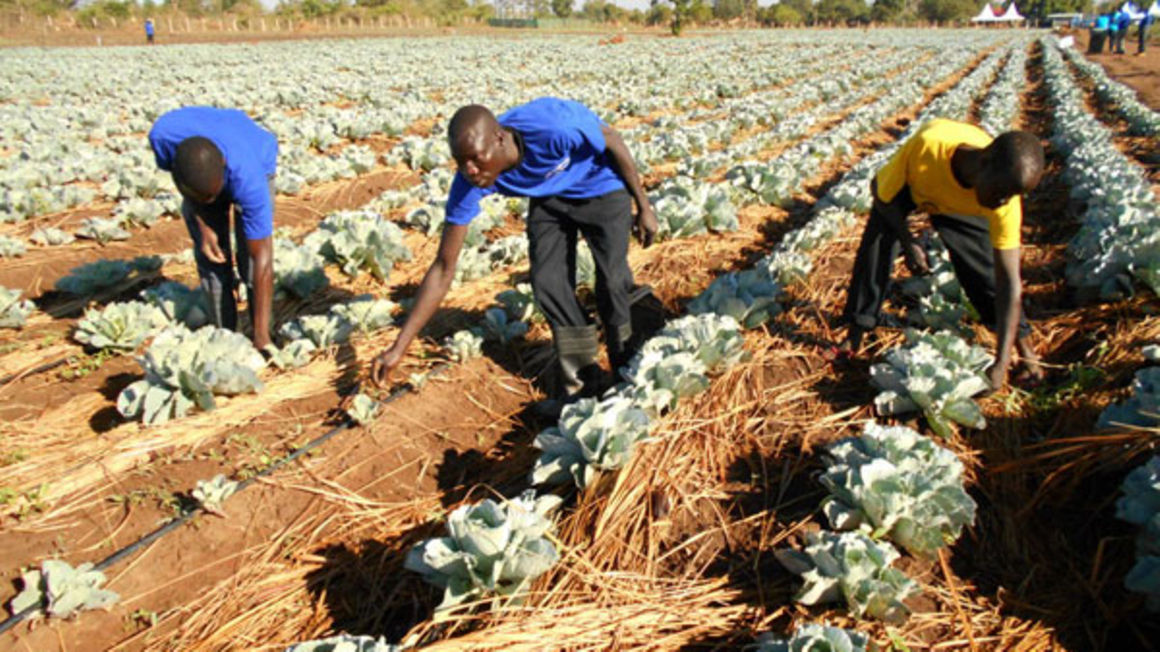Africa’s Securest Defense Against Crisis Is Dependable Agricultural Production
Categorised in: BLOG
A crisis as intense as the Covid-19 plague can be quite revealing. For example, whereas the common adage that cash is king has not been erased, reality is that cash is only king in the ideal world.
Under intense strain, cash can be quickly overtaken by the key life essentials that are normally perceived to be easily within its reach. Also in times of extreme distress, money offers limited remedies even as it can still ease some challenges.
What has been revealed through the ongoing Covid-19 crisis is that the relief derived from sufficient cash reserves is not sustainable. A point can be reached when suppliers of what you desire to buy are only able to produce for themselves, as a self-preservation measure.
In that case, you are left with your money, its value greatly compromised. Even without this, the ability of material and monetary wealth to combat distress has been greatly put to test during crisis. Indeed, in the current crisis, wealth has been found wanting in many ways.
There are many essential requirements of life. Food is one of them. Others are listed as clothing, shelter and essential services such as education, health care and others. They guarantee a decent living for humankind.
Food is a critical and unique member of this set. It has no direct substitute. Everyone must eat. If you do not have food and you are not able to access it in exchange for whatever else you have, it then does not matter what else you have.
Whereas relevance of other basic needs has evolved over the years, food has basically been critical from day zero of human existence. Some communities on earth only got introduced to some of the basic needs in recent centuries, but they always had to eat before then.
In any case, good nutrition is crucial to other basic needs such as health. It is also usually healthy minds that tend to have a good mental capacity required to maximise the benefits of education.
Africa is not yet advanced in order to facilitate the flow of the above essential needs, except with regard to the most important – food. The continent is naturally gifted with 60 per cent of global arable land and nine per cent of global fresh water.
According to the International Food Policy Research Institute, irrigation has the potential to boost Africa’s agricultural production by 50 per cent, but current food production on the continent is almost entirely rain fed.
In times of crisis and distress, every society resorts to its developed strengths to survive. Those with advanced health systems fall back on the same systems. Those with advanced education systems and accompanying advances in science (depending on the nature of the crisis) can also have these as a good defence.
Those with advanced manufacturing capabilities direct their industry towards crisis aversion needs within their borders, as well as export their crisis-critical products to other markets, if the option is feasible.
For Africa, improving agricultural production and related food security is the quickest defense position that needs to be strengthened and the capacity to achieve it is within easier reach, even in the short term, compared to advancing industry and manufacturing, or attaining best-class health infrastructure and systems.
That said, the need for developed industry is also key. Africa must develop health systems that march the growing needs of medical care.
Investments in quality education must continue as should the focus on all basic needs, as well as secondary needs. There must be a holistic approach to development for Africa, for the continent to sustain herself going into the future.
However, advancing agriculture is what some would identify as the low hanging fruit for the continent. It is what is easiest to achieve, and yet is what is most important for Africa.
The ability to produce own food, in good times and, more critical, in seasons of distress is paramount for developing societies. It is even more so if the inherent capacity to attain it is high.
This is Africa’s current station. It would be extremely complicated if Africa, far from sustaining herself in virtually all other basic life necessities, had to also depend on foreign supply for food, in a world in peril.
There would simply be insufficient focus on the continent’s food needs by any foreign suppliers of food, especially for the continent’s ballooning population.
Africa must secure her food production, as a matter of urgency. The continent has what it takes and should not wait for a time when she will hope on foreign providence for the critical requirement of feeding.
Raymond is a Chartered Risk Analyst and risk management consultant
rmugisha@afriaccent.com
